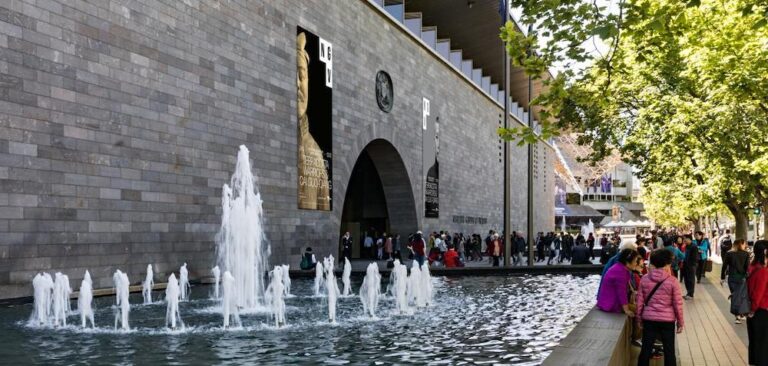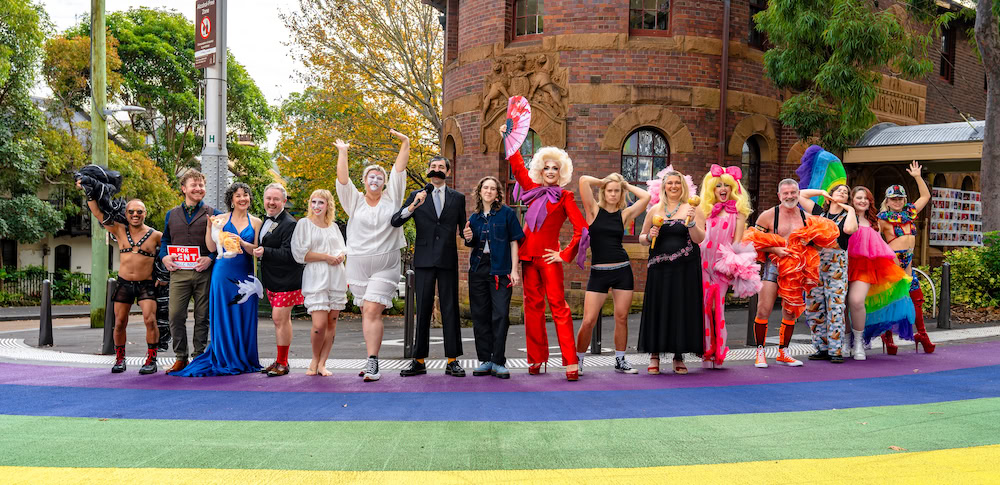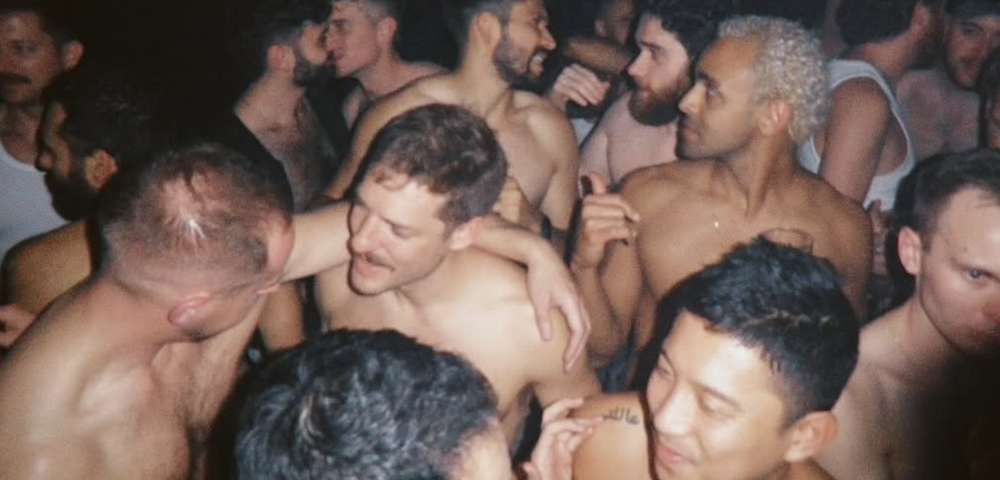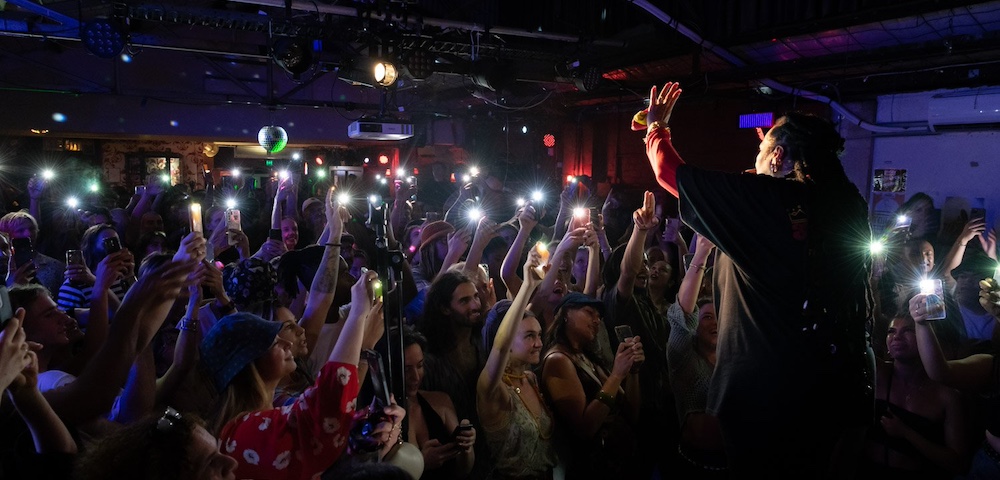
Changes explained
The organisations that urged the Federal Parliament to quickly adopt the same-sex equality reforms are preparing to change their stance in light of the grassroots call for a grandfather clause.
As same-sex couples on pensions began to realise their fortnightly payments will be cut from the singles’ rate to the couples’ rate, more GLBT community groups and leaders have been demanding to know why advocates hadn’t demanded a grandfather clause.
Such a clause would allow those already benefiting from the discrimination to keep the higher pension rates, but Attorney-General Robert McClelland ruled it out on Melbourne radio station JOY 94.9FM last month.
ACON, the Gay and Lesbian Rights Lobby, Positive Life, the Welfare Rights Centre, People with Disability Australia, and the National LGBT Health Alliance are preparing to issue a new joint policy position on Monday 16 February during a forum on the social security changes and their impact.
The issues around the changes to Centrelink payments under the Same-Sex Relationships Act which come into force on 1 July are of concern to many in our community. We are also aware that many of you are seeing clients who are very upset and are asking for information, ACON wrote to their volunteers last week.
info: The information forum will be held at ACON Sydney, 9 Commonwealth St, Surry Hills on 16 February, 6pm-8pm.
Details: 9206 2048.










“Invitation from Prof Jenni Millbank”. Unfortunately some people choose to exploit & use the equality debate to pursue, & gain publicity/traction for, thier own mission to remove marriage even for straights. This is counterproductive to everyone. We are not things to be used for this specific purpose. We deserve equality (something we still don’t have in Australia), and IF down the track straigths can’t get married, then we’ll be equal to that too…. but don’t use the same sex couples equality push in 2009 as a springboard to remove marriage for straights.
As for the concept of removing marriage for straights- if that is your ultimate goal- good luck getting your own publicity for it- don’t use us.
Besides, why reform marriage, like how marriage was reformed to allow blacks to marry whites, reformed to allow divorce, reformed to allow same sex couples to marry in many many countries since 2004 & the list is growing.
Proponents of a grandfather clause rightly and passionately argue for the rights of our glbtq elders. But is a grandfather clause the best approach? How do we reconcile its standout flaws (namely, that it is too arbitrary, not based on a case-by-case assessment of individual need, and will resolve disadvantage for some but enshrine and enact inequalities for others)?
Consider a clause that insulates all welfare gays over a certain age (eg. over 50) from the changes. Where does that leave welfare gays UNDER that age who face similar disadvantages?
Consider a clause that insulates all existing welfare gays from the changes. Where does that leave NEW welfare gays who face similar disadvantages?
Where does any clause leave welfare heteros (who have been subject to the stricter regime all along, even though some of them face greater disadvantage than some welfare gays)?
A better outcome may be that a rising tide that lifts all boats: pension increases for ALL genuine disadvantaged on a proportionate basis of demonstrable need instead of sexuality. That, and Human Services Minister Senator Joe Ludwig must be pressed on his assurances that Centrelink will properly maintain the confidentiality of its clients. If there is a genuine risk that Centrelink’s actions will ‘out’ older gays to their detriment, then regulations governing what Centrelink officers can and cannot divulge to whom ought to be promptly reviewed and clarified, to ensure that safety and security of the client is paramount and discretionary leniency is an option whenever personal information likely to lead to discrimination is involved.
Invitation from Prof Jenni Millbank:
UTS:LAW invites you to a Public Lecture by Fulbright Senior Specialist
Professor Nancy Polikoff
“Beyond (Straight and Gay) Marriage”
Professor Polikoff is an internationally renowned expert in family and relationship law who for the past 30 years has been writing about and litigating cases involving lesbian and gay families. Nancy is from American University Washington College of Law and is visiting UTS Faculty of Law in February 2009 on a Fulbright Senior Specialist award.
When: Thursday 26th February 2009
Time: 6:00pm
Where: UTS Haymarket Campus, Quay St Ultimo
(please note this is NOT the UTS Tower on Broadway)
Moot Court, Level 1, Building 5,
Block B
Cost: Free
RSVP: Friday 20th February to
Marianne.taylor@uts.edu.au
Nancy Polikoff argues that, while same-sex marriage is a civil rights victory for LGBT people, it’s not the fix to what is wrong with the law of families. In Beyond Straight and Gay) Marriage: Valuing All Families under the Law, Polikoff criticizes the mainstream “marriage movement”
for blaming all social problems on the decline of life-long marriage and the gay rights “marriage equality movement” for pushing marriage as the solution to the problems gay families face. She reframes the debate by arguing that all family relationships and households need the economic
stability and emotional peace of mind that now extend in the US only to married couples, and, in Australia, recently extends to all couples.
Professor Polikoff proposes identifying the purpose of each law that now treats couples differently from other households and relationships and then rewriting the law to better meet its purpose. This will make it possible to provide single-parent households, extended family units, and myriad other familial configurations the recognition and protection they need to build and sustain economic and emotional interdependence and nurture the next generation.
Hi Peter, (15/2) I was at the first Mardi Gras in 1978 and I have always thought that it is better to be out. I would encourage people to be out as much as possible, including if they are in their 90s and I used to have NO time for those that were not. Then I met Del Martin and Phyllis Lyon in SF and they told me that if we do not protect those who are in hiding by virtue of lives lives being subjected to shock treatment (torture)/ lobotomy / incarceration / persecution / hate / then we are not seriously engaged in ‘gay ageing activism’ as I myself claimed to be. I then heard this from all the OLOC women http://www.oloc.org
and it seriously hit me how right they are. They told me about a very large nursing home where management said ‘we have NO gays here’ and after a process, there is now a Rainbow Group, who go in the parade. But there are also those who just cannot come out, and they are supported and are witnessing those who can, and now they access confidential advocacy.
There are many strings to this bow, and coming out is one, while protecting the vulnerable is another – and Phyl and Del were out in the 50s, but urged that we not abandon those who cannot speak up, we speak for them.
As for the hustlers well that’s not my area of academic expertise but I have always gone for the fair go option myself!!!!!!!!!!!!!!!
Oh, and will the ‘cheats’ be giving up their social services? I refer to the live-apart long term couples with wills favouring each other, etc, where the wealthy one assists the social service recipient. I know a number of them, including a lawyer on $600,000 pa and his twenty year on disability in shared ownership property, and Centrelink hustlers enjoying undeclared sugar daddy support. Good luck to them while they ‘got away with it’, but if the result is a reduction of the circumstances of hiv pensioners and impoverished seniors, fair go please!!!
Dear Jo (14/2), I am a 62 year ‘old’ gay! I and my peers spent our lives ducking and weaving the nasty str8 world and I for one have supported a policy since I was around 14 of be ‘out and proud’ and beat them at their own game. “In the closet’ always ends up in tragedy – I have seen it repeatedly. Lead, don’t follow!
What we are witnessing is that the current marriage laws were wrong to begin with. Nothing new of course. They favoured the male partner. It is not possible to transfer gays and lesbians onto that structure without causing problems. It is about time society treated all its adult citizens as individuals and we all had the same rights not contingent upon another person we have sex with, or live with. Of course there would need to be consideration for those who support children, disabled or elderly family members and so on. At present this help is pretty pathetic.
I personally have never wanted equality to the unequal heterosexual laws, neither have many other lesbians.
It is important that politicians as well as some of the younger &/or ‘we’ll all have to put up with it’ gays & lesbians realise that there is a BIG difference between formal equality and substantive equality. The first is about an across the board/on the face of it approach while the second is about outcomes and accounting for past systemic disadvantages. Thanks Blake for your clarity around this issue. Yes grandfathering (protection for those already in the system) is an example of affirmative action.
There are various aspects to underpin the call for grandfathering for some -˜same-sex’ Centrelink beneficiaries (eg. Age Pensioners & Disability Support Pensioners & Carer’s payments over 55 years). They include (i) privacy, (ii) hardship, (iii) history of discrimination, disadvantage, stigmatisation etc. (iv) past recognition by federal govt. as a *single* (v) insufficient time to re-arrange financial & other aspects, (vi) consistency factor – you don’t change the rules after the engagement commences- recognised in grandfathering of other Centrelink changes for past 15 years.
These are not competing arguments – rather complimentary. However, it is most important to particularise these issues to the facts of the mainstream dealing with us as lesbian or gay. In turn this is why older lesbians and gays especially have been disadvantaged socially, financially, in the workplace, personal lives etc. It’s not enough to say hardship per se – as pretty well all recipients of Centrelink pensions etc. suffer hardship (otherwise they’d have the independent financial means to secure incomes). Likewise re the privacy argument: Centrelink keep saying they know how to protect privacy and have always asked hetero de factos intrusive questions, so they’re aware of this. We have to tell them how and why Gs & Ls lives have been different.
I hope there can be cross-generational support for the above. It would be silly if this issue became an old vs. young debate. Please remember that without the strength, courage and activism of older lesbians & gays we would have not got to today’s public and legal recognition which is so much more positive than 20 & 30 & 40 & more years ago.
Older gays and lesbians have fought for our rights and equality, they have lobbied for justice -“ and now have ended up being the victims of injustice ie. lack of substantive justice. Not fair!
Thanks for reading all this. Some things have to be said!
The issue is not about recognition of relationships, no matter how importnat that may be. It is about precedents. Virtually all changes to Centrelink laws over the past decades have included “grandfathering” – a significant period when nothing changes for those already in receipt of the pensions involved. For example, when the pensionable age for women changed from 60 to 65 there was around 20 years given for the phasing in so that people had time to adjust their affairs. When young women married much older men who were on the pension, there was a grandfathering when the laws changed. So, why aren’t we entitled to the same consideration? We are not asking for exceptions, we are asking for ordinary equity.
There will also be a forum in Adelaide on Thursday 19th Feb, 6 pm at Way Hall, 10 Pitt St, Adelaide, organised by ACSA, Bfriend, PLWHA SA, National LGBT Alliance called “Equality: at what cost to you and your partner”. There will be speakers, time for questions and discussion.
Enough with the ‘you got what you asked for’ crap.
Has anyone read the evidence to the Senate Committee of Inquiry into the Same Sex….General Law Reform Bill? Just draw breath for one minute and look at
http://www.aph.gov.au/Senate/Committee/legcon_ctte/same_sex_general_law_reform/index.htm
And you will see that myself and others argued hard that ‘equality’ was not going to be achieved if it involved forcing elderly gays out of the closet after lifetimes of pain and hiding.
Welfare Rights Centre and others raised the issue, and it was raised at the HREOC hearings also.
I for one have NO INTENTION of backing off on calls for protection of elderly gays, I am determined that this government be shamed on the International stage if it goes ahead with this unconscionable plan. Already I am getting messages of support from overseas experts asking what kind of government does this to people near the end of life…………
Straights, including pretend straights, will never be accepting because they fear us – all very freudian! Stop whinging – we got what we asked for. Once again, misplaced new-age equality gays tripped up. What on earth do we want equality with straights for – we will always be different?
Equality is more than just treating people equally. This is why Australia also includes Affirmative Action, in order to address historic in-equalities by treating people differently to bring about genuine equality through results.
This means, that by giving certain people special treatment, the result is genuine equality, not equal treatment, which can result in inequality.
What we really need, is this to be acknowledged. Genuine equality for members of our community who have paid a life-long price of not being equal, should not be forced to pay for our equality. Provide them with genuine equality and keep their payments at the higher rate, and make sure they benefit now, along with all of us.
Making them pay for us, is simply not fair, and certainly not equality.
Well Liz, why don’t you go to the forum and volunteer your story? Child support is also changing to include same-sex parents.
Too late, the legislation is already passed, the glrl were too busy wetting their nappies with excitement at a labour government being in power that they didn’t think about the consequences of their poorly thought out actions.
I’m on a carer payment with a severely disabled child, and my partner has kids as well, and we have a mortgage and we stand to lose tens of thousands of dollars over this, and face being inelegible for services for my disabled child because of my partner’s income.
I can’t get child support from my previous female partner, and I don’t know how child support agency would handle that, THEY don’t even know themselves.
What really bites is that we really want to get married but still can’t.
Also, what about the lesbians out there that wanted kids in the past and had them as a single woman whilst in a relationship?, without their girlfriends input or consent, as their consent wasn’t needed.
They could do that, I know of a few women that did. Are the girlfriends that had no right to say no, and no recognition as even EXISTING going to be chased for child support when the child support agency put their hastily constructed guidelines together?.
Yeah, good one glrl, the government really shafted you and us, the government are really having their cake and eating it too.
The closet homophobes are laughing at us behind their hands
whilst pretending to be all about ‘equality’.
It’s all the people struggling, especially with kids that are going to get hurt over this, I hope the glrl choke on their celebratory canapes.
Although David makes an interesting point, his political senses are off the mark. The fact is gay marriage equality has buckley’s chance of being brought foward in Australia in the current political climate and some people don’t want to get marriage. The Human Rights Commission recommended de facto laws and the laws reflect the recommendations of that report. True equality means equality in all laws, including marriage and de facto laws.
Same-sex couples have had de facto laws in NSW for 10 years. Does David suggest we roll back the rights of same-sex partners (who are unable or unwilling to get married) to see their dying partners in hospital too, until we get gay marriage?
And whilst the Greens are commendable for pushing the envelope on gay equality, fact is: they are not in government.
Simple- don’t bring in the Centrelink changes until we get 100% equal access to having a civil marriage in a govt registry office. ie Full Equal Rights BEFORE Full Equal Responsibility.
I don’t know why NSW GLRL & NSW Rainbow Labor held that back-slapping party for Labor without making them accountable to not enforcing full Responsibility until we got full Equality first (which we still don’t have, & far from it). At the moment we are still banned from civil Marriage, whilst many other advanced countries pass us by.
Why did the NSW GLRL put de-facto ahead of marriage? & why are Rainbow Labor still hung up on duplicated/aparteid/outdated civil unions instead of civil marriage. Instead of aiming to allow those who wanted to get married the choice, we have de-factos who don’t want to be recognised at all being the first ones who are (sure they know it’s inevitable down the track… but to be the FIRST cabs off the rank to be recognised, ahead of those that want marriage… at the very least the Centrelink changes should be delayed by at least a year or two).
With the unprecedented balance of power now in the Federal Senate to the Greens & Indies who can bring the govt to their knees on any issue now, equal marriage is quite achievable. Keep voting 1 Greens, and 2 Labor to increase that balance of power even more at next election.